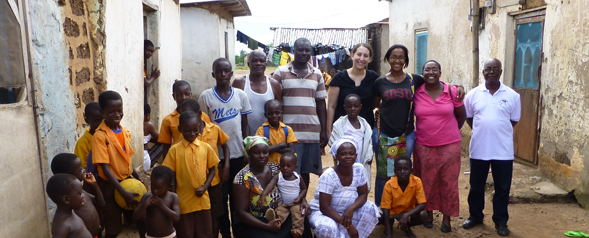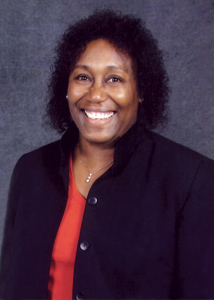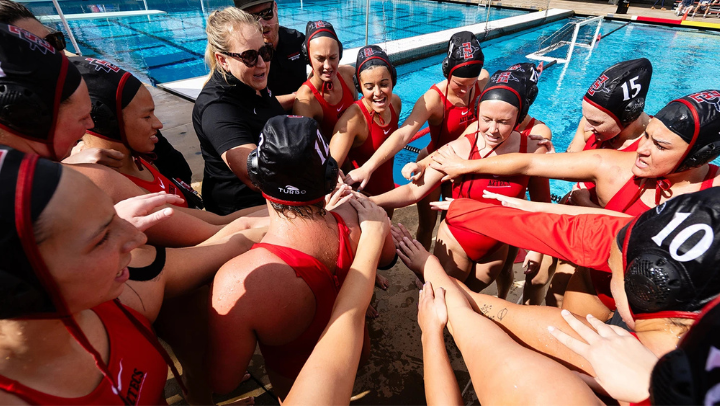Aztecs Research in Africa
SDSU's Estralita Martin has led a research abroad program in Ghana since 2002.

If you visit Estralita Martin's office at San Diego State University, you will see a giant map of the world where hundreds of pinpoints are scattered, each representing a student she has helped over the years.
"I use the map as an icebreaker — whenever students come in with a question or problem, I have them show me a place on the map where they're from," said Martin, SDSU's assistant dean for student affairs for the College of Sciences."Through our conversations, I learn more about our students, their cultural background and my role as a global citizen."

Martin channeled her fascination with the world and love of biology into a successful Minority Health and Health Disparities International Research Training program, where she heads an annual trip to Ghana to study how plants aid in holistic healing practices.
Martin is well-versed in ethnobotany, the study of the relationship between humans and plants and how different cultures use plants for healing.
Since 2002, Martin has led students from across the nation to perform research on diabetes using ethnobotany methods, with the help of fellow SDSU colleague and biology professor, Robert Pozos.
About the program
Minority Health and Health Disparities International Research Training is an international research experience that prepares students for a career in biomedical research.
The long-term objective of the program is to increase the number of underrepresented minority faculty in biomedical sciences. Students in the program conduct biomedical research at an international site for up to three months, depending on the program.
At the end of the program, students complete a scientific research paper and present their findings on cultural observations of scientific ethics in the country.
While in Ghana, students learn how plants are used to treat diseases and how to extract the chemicals within the plants under the tutelage of Professor Francis Tayman, an organic chemist at the University of Cape Coast.
In addition to their individual research projects, students are trained to:
- Gather the supplies and equipment needed to perform organic chemistry studies in a remote location
- Extract critical elements from plants
- Use silica gel chromatography, alkaloid detection and high-performance liquid chromatography
Studying in Africa
Martin selected Ghana as the country of study for the 12-week trip because the program traditionally caters to African American students.
"I selected Ghana as the country of study to allow African American students of slavery descent to learn how to do quality research with limited resources while learning more about their cultural heritage," Martin said.
The program fuses African culture with the holistic study methods. Martin aims to show students that traditional African ethnobotany methods can achieve similar results as modern-day, Western medicine practices.
Participants also partake in a community service project while abroad.
Aztecs in Africa
Since the program's inception, an SDSU student has been accepted into the prestigious program every year. Nadine Ayouty, a senior chemistry major, participated in this summer's trip.
"My favorite aspect of this program is how seamlessly it combines a cultural experience along with the chemistry lab research," Ayouty said. "That is something I never thought was possible."
Ayouty acknowldeged SDSU for preparing her for the intensive research.
"I have taken inorganic and organic chemistry courses at SDSU. It really helped me have a strong foundation as I conducted my research in Ghana. The professors at SDSU really equipped me with the knowledge I needed to feel comfortable and confident in the organic chemistry lab in Ghana."
About Martin
Martin obtained her bachelor's of science degree from Oberlin College in biology and physical education, her master's of science degree in biology from Atlanta University and her Ph.D. in biology with an emphasis in cell and developmental biology from the University of California, Berkeley.
While doing her post-doctoral research at the University of California, San Diego and the Veterans Administration Medical Center, she was asked to teach general biology and embryology, an upper division biology course at SDSU. She is also a faculty advisor to student organizations on campus, including the College of Sciences Student Council.



